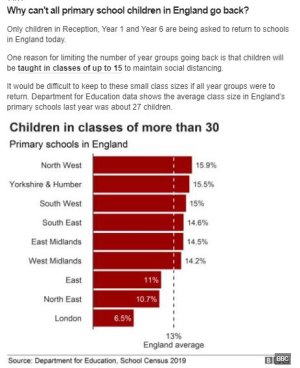- Joined
- Oct 2, 2004
- Runs
- 217,479
Below is the UK situation but am sure similar issues will happen in other countries too.
====
Pupils whose exams were cancelled due to the coronavirus epidemic will be given grades estimated by their teachers, the government has said.
The announcement comes as most UK schools closed their doors to a majority of pupils indefinitely in an effort to stem the spread of the virus.
But many schools will re-open on Monday with a skeleton staff to accommodate the children of "key workers".
There are concerns the hastily arranged system may struggle to cope.
Teachers in England will look at coursework, mocks and other evidence from A-level and GCSE students and will award grades.
And a process will be agreed with exam regulators and exam boards to see that pupils' "hard work and dedication is rewarded and fairly recognised".
A similar process is likely to be followed in Scotland, Wales and Northern Ireland.
England's Education Secretary, Gavin Williamson, said cancelling exams was something no education secretary would ever want to do, but it was vital in these "extraordinary times".
"My priority now is to ensure no young person faces a barrier when it comes to moving onto the next stage of their lives - whether that's further or higher education, and apprenticeship of a job," he said.
The announcement came as hundreds of thousands of school pupils were saying sometimes tearful goodbyes to each other for possibly the last time.
Pupils at the end of primary, GCSE and A-Level students do not know whether they will see their classmates again in school.
Head teachers and local authority officials have been struggling to work out whose children they should be accommodating when schools partially re-open on Monday.
The government has published a list of key workers whose children can still go to school if they cannot be looked after at home.
These workers' jobs are considered "critical" for the response to the pandemic.
The list has been separated into eight categories, including frontline health workers and social-care staff, nursery and teaching workers and those involved in food production and delivery.
It also includes the police, those in key public services, transport workers and critical staff in financial services and utilities.
Northern Ireland Education Minister Peter Weir has said all schools there should be prepared to cater for key workers' children after they close on Monday.
https://www.bbc.com/news/education-51980831
====
Pupils whose exams were cancelled due to the coronavirus epidemic will be given grades estimated by their teachers, the government has said.
The announcement comes as most UK schools closed their doors to a majority of pupils indefinitely in an effort to stem the spread of the virus.
But many schools will re-open on Monday with a skeleton staff to accommodate the children of "key workers".
There are concerns the hastily arranged system may struggle to cope.
Teachers in England will look at coursework, mocks and other evidence from A-level and GCSE students and will award grades.
And a process will be agreed with exam regulators and exam boards to see that pupils' "hard work and dedication is rewarded and fairly recognised".
A similar process is likely to be followed in Scotland, Wales and Northern Ireland.
England's Education Secretary, Gavin Williamson, said cancelling exams was something no education secretary would ever want to do, but it was vital in these "extraordinary times".
"My priority now is to ensure no young person faces a barrier when it comes to moving onto the next stage of their lives - whether that's further or higher education, and apprenticeship of a job," he said.
The announcement came as hundreds of thousands of school pupils were saying sometimes tearful goodbyes to each other for possibly the last time.
Pupils at the end of primary, GCSE and A-Level students do not know whether they will see their classmates again in school.
Head teachers and local authority officials have been struggling to work out whose children they should be accommodating when schools partially re-open on Monday.
The government has published a list of key workers whose children can still go to school if they cannot be looked after at home.
These workers' jobs are considered "critical" for the response to the pandemic.
The list has been separated into eight categories, including frontline health workers and social-care staff, nursery and teaching workers and those involved in food production and delivery.
It also includes the police, those in key public services, transport workers and critical staff in financial services and utilities.
Northern Ireland Education Minister Peter Weir has said all schools there should be prepared to cater for key workers' children after they close on Monday.
https://www.bbc.com/news/education-51980831









